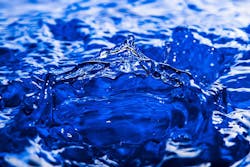Oklahoma awarded $855,000 to protect water quality
DALLAS, MAY 10, 2017 -- The U.S. Environmental Protection Agency (EPA) recently awarded $855,0000 to the Oklahoma Office of the Secretary of Energy to support management of nonpoint-source water pollution. The funding will be used for a variety of projects designed to improve water quality in several priority watersheds.
"Improving the Nation's water is one of EPA's highest priorities under the Trump Administration," said Scott Pruitt, Administrator. "This grant funds state-led programs that are working for communities throughout my home state of Oklahoma."
Nonpoint-source pollution (NPS) is caused by rainfall or snowmelt moving over the ground. This runoff picks up natural and man-made pollutants as it flows, eventually depositing the material into lakes, rivers, and groundwater. This type of pollution can be difficult to manage since it cannot be traced to a specific source.
"Oklahoma has shown great success in improving water quality by working directly with landowners to reduce non-point source pollution," said Michael J. Teague, Oklahoma 's Secretary of Energy and Environment. "This award will continue to assist the Oklahoma Conservation Commission and partners to improve our state's waters."
EPA's grant will help Oklahoma fund NPS management projects such as controlling animal wastes, sediment, pesticides, and fertilizers; watershed planning and monitoring; and education and outreach programs.
The nonpoint-source pollution control program supports the goals of the Clean Water Act to protect rivers, lakes, bays, wetlands, and coastal waters. Streams and wetlands benefit communities by trapping floodwaters, recharging groundwater supplies, removing pollution and providing habitats for fish and wildlife. Families and farms located downstream understand the importance of healthy headwaters upstream. One in three Americans get their drinking water from public systems that rely on seasonal and rain-dependent streams.
